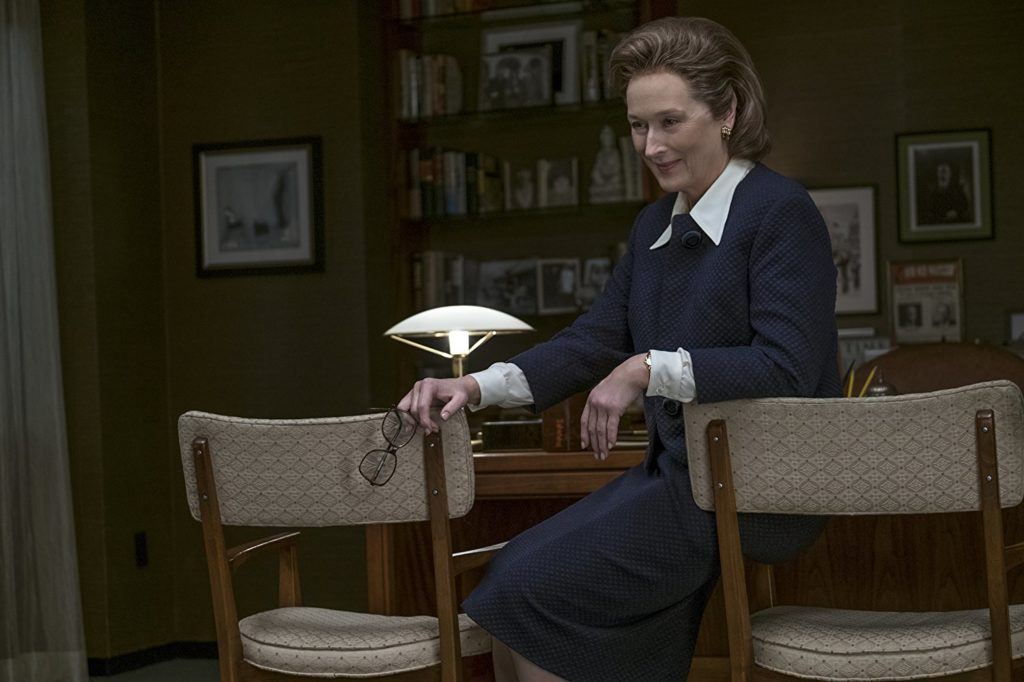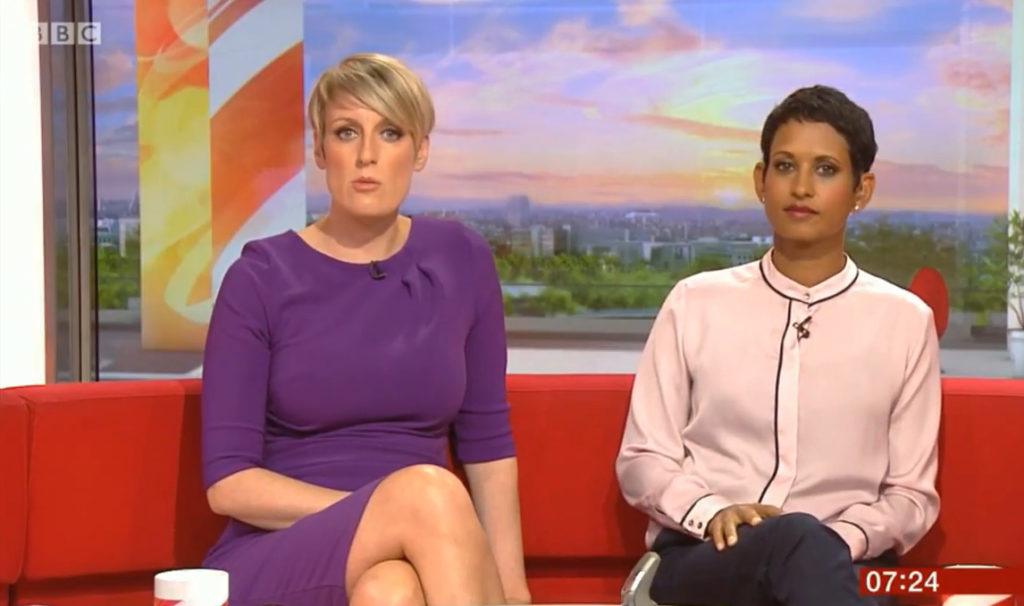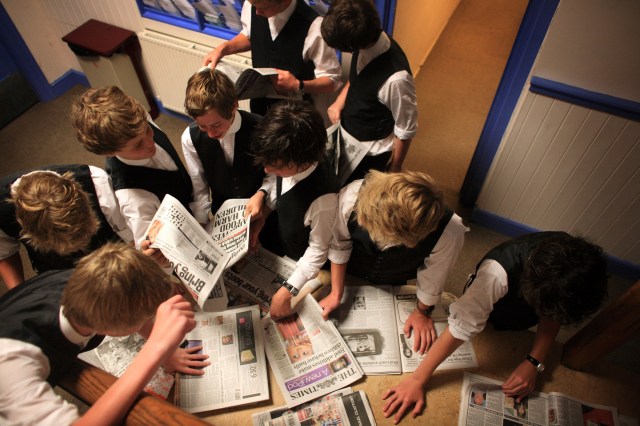Eton College school boys. More than half of journalists were privately educated, compared to just 7% of the general population. Credit: Christopher Furlong/Getty Images

“In the First Amendment, the Founding Fathers gave the free press the protection it must have to fulfill its essential role in our democracy,” declared Justice Hugo Black. “The press was to serve the governed, not the governors”.
Black’s celebrated statement dates from 1971, when he was one of the Supreme Court arbiters in the pivotal legal dispute between US newspapers and the government. The New York Times and The Washington Post had published extracts from the Pentagon Papers – a top-secret study that proved hundreds of thousands of US troops had been sent to their deaths in the Vietnam war, despite official predictions America would ultimately lose.
Black’s words, which should be precious to all journalists, featured at the end of “The Post” – the recently Oscar-nominated movie starring Meryl Streep as Katharine Graham, then Washington Post proprietor. By allowing editor Ben Bradlee to print the leaked documents, in defiance of President Nixon and much of US establishment, Graham risked not only her family’s newspaper and wealth, but also a stint in jail.
History now records, of course, that the Supreme Court found 6-3 against the government, exonerating The New York Times, The Washington Post and the regional papers that, in solidarity, followed up the Pentagon Papers story. But, at the time, Graham faced a genuine fork in the road. Her courageous choice, and the judiciary’s subsequent backing, was a victory for truth and liberty, but also democracy – the benefits of which spread across the Western world and are with us to this day.

Yet as I left the cinema last week, heady thoughts about press freedom, and Streep’s towering performance, were overcome by feelings of unease.
Yes, the press must “serve the governed, not the governors”, as Justice Black said – and, to some extent, the British press does. But do our newspapers and broadcast news bulletins really represent and reflect “the governed”? I don’t think they do. I’d say that British journalism is less representative of British society than when I became a journalist in the mid-1990s. And far less so than during my childhood.
Insider-Outsiders
I grew up thinking anyone could be a top-class journalist. I watched avidly as the BBC’s John Cole, in his famous herringbone jacket, opined from outside Downing Street during the 1980s. Through my own Irish family connections, I discovered Cole was the son of a Belfast electrical engineer who never went to university.
I devoured The Times, particularly the columns of Bernard Levin. (There were no broadsheets in my childhood home, but I read them on my morning paper round, making me late for school). Levin’s razor-sharp prose and disdain for authority were thrilling. Reading he was the son of a poor Jewish tailor, I sensed, even as a child, it was this “insider-outsider” status – on The Times staff, but from a properly gritty background – that made Levin the columnist he was. Perhaps there was a place for me.
The British media – newspapers in particular – used to be a route by which the sons and daughters of ‘ordinary’ families, if driven and talented, could rise from obscurity to prominence. Anyone doubting that should read Growing up Poor in London, the fascinating memoir of Louis Heren who, born into poverty in London’s East End, made the journey from messenger boy at The Times to Deputy Editor in the early 1970s.
The Cowardly Lioness by Jean Rook is a similar tale from a similar age, the precocious usherette’s daughter who blazed a trail from The Sheffield Telegraph via The Yorkshire Post to Fleet Street, never forgetting her unflashy Hull childhood. “Being Yorkshire is a bonus,” she wrote. “Yorkshire folk call a spade a spade and, when roused, dig the graves of those who irritate them”. At The Mail, and then The Express, Rook garnered countless millions of readers. From high politics to celebrity gossip, she wrote instinctively what much of the public was thinking because she was ultimately one of ‘them’.
British journalism was then more inclusive. The powerful, highly profitable regional newspapers – from Manchester to Glasgow, Leicester to Newcastle – were seedbeds of talent. Ambitious working-class youngsters could forge a career path from local papers to “the regionals”, with good rates of pay, with countless well-trained working-class children securing their berth on “a national”.
On arrival, they had not just reporting skills, determination and deep knowledge of specific parts of the country. They also brought, to London-based national newsrooms, a genuine understanding of the lives of everyday British people. These insights were brought to bear on their reporting and approach to covering the news.
In 1987, when I left school, some 70% of company CEOs went to private school according to a recent report from the government’s Social Mobility Commission – compared to just 7% of the broader population.[1. Social Mobility Commission, Time for Change, June 2017] By 2016, that figure had fallen to 34%, with corporate Britain better reflecting the country as a whole.
Journalism – apparently committed to justice and broad appeal – has gone in the opposite direction. Some 49% of journalists were privately educated in the late 1980s, rising to 51% by 2016. No less than 66% of journalists have parents in professional and managerial occupations, with just 12% from the working class.[2. Katherine Sellgren, ‘Social mobility: Class pay gap found in UK professions’, BBC News, 26 January 2017] In an industry that professes to reflect, empathise with and understand society as a whole, this is surely a disaster.
I come from an ordinary, non-professional background, and was the first person in my family to go to university. Aged 10, after some heartfelt creative writing in an entrance exam and a feisty interview, I won a life-changing scholarship to public school.
Yet my own experience working at some of the UK’s leading newspapers and broadcasters since the mid-1990s, tells me that while issues of gender and racial diversity are being addressed, diversity in terms of class is getting worse.
Yes, there are a fair few smart, working-class people shooting TV news pictures, subbing copy and composing graphics behind the scenes. But the named writers and on-screen ‘talent’ are still overwhelmingly from well-connected, often gilded, families, almost always from the South East.
I don’t want to sound chippy. My Kingsbury upbringing didn’t stop me becoming a national newspaper columnist or securing an on-screen job at Channel Four News. I worked hard and made my own luck. But my concern is for my equivalent today. For it strikes me that a young boy from a working class background, sat reading and dreaming in a box-room, looking out over an anonymous suburb, would have far less chance than I did. And perhaps no chance at all.
Class Action
Anita Rani, a BBC presenter born to a Hindu father and Sikh mother in Bradford, herself privately educated, last year said the much-discussed pay gap at the UK’s iconic broadcaster is as much about class and race as gender.[3. ‘BBC pay: Anita Rani ‘disappointed’ by race and class gap’, BBC News, 4 August 2017] In February, Stephanie McGovern, another BBC presenter, proudly Middlesbrough-born and of “working-class stock”, observed she “would earn more if she was posher”.[4. Steve Schofield, ‘Steph McGovern: I’m not posh so the BBC pays me less’, The Times 25 February 2018] Having spent more than two decades knocking about the UK media industry, I think Rani and McGovern are right. But my concern here is more about access for working class journalists rather than pay.

I accept that newspapers are financially challenged, not least because of the tech-onslaught – with the likes of Facebook and Google taking the bulk of the money. The hollowing-out of the regional and national press has hit budgets and staff numbers, and therefore opportunities.
I also acknowledge that some newspapers and broadcasters are now shying away from the unpaid internships that help well-healed, connected newcomers with South-Eastern parental homes get that all-important foot in the door, while leaving working-class regional hopefuls behind.
But the UK media, and its US counterpart, is still increasingly failing to understand ‘ordinary’ people because there are so few of them at or near the top of the industry, where decisions are made. The media classes consistently under-estimate the intelligence of those in non-professional jobs, eschewing complexity because they assume – wrongly, in my experience – that the punters can’t understand or are uninterested in policy detail.
The British media, now taking long-overdue steps to tackle gender and race discrimination, must tackle with even greater urgency the entrenched and endemic issue of discrimination by social class.
We need more ordinary people writing columns – before newspaper commentary, particularly cultural commentary, is reduced to nothing but the lifestyle choice of the listless children of the ‘one percent’.
We need more reporters on our screens and airwaves who sound like ordinary people. This is no longer the 1950s, yet received pronunciation remains always ubiquitous. Why?
And, above all, we need to bring back into our journalism the influence of driven, worldly-wise writers and broadcasters from ‘ordinary’ backgrounds. For it is such gifted, restless characters, more than any others, who give meaningful journalism its all-important edge.
In “The Post”, Steven Spielberg tells the story of a woman from America’s affluent high society – albeit one who, when tested, risked her privileged status, and even her personal liberty, to print the urgent truth. For that, Katharine Graham deserves the utmost credit.
But the reason the Pentagon Papers story happened, and Graham was faced with her historic dilemma, was the dogged determination of two ‘insider-outsider’ reporters with a huge stake in American democracy. One was Ben Bagdikian of The Washington Post, who came to the US as an infant refugee from the Armenian genocide. The other was Neil Sheehan of The New York Times, the son of Irish immigrant farmers.
Could such people now fight their way in, becoming top reporters at the doyenne British or American titles today? I don’t think so. Are our newspapers, our media industry and broader democracy now benefiting from the street smarts, drive and flat-out determination of such extraordinary ‘ordinary people’? I think not.










Join the discussion
Join like minded readers that support our journalism by becoming a paid subscriber
To join the discussion in the comments, become a paid subscriber.
Join like minded readers that support our journalism, read unlimited articles and enjoy other subscriber-only benefits.
Subscribe